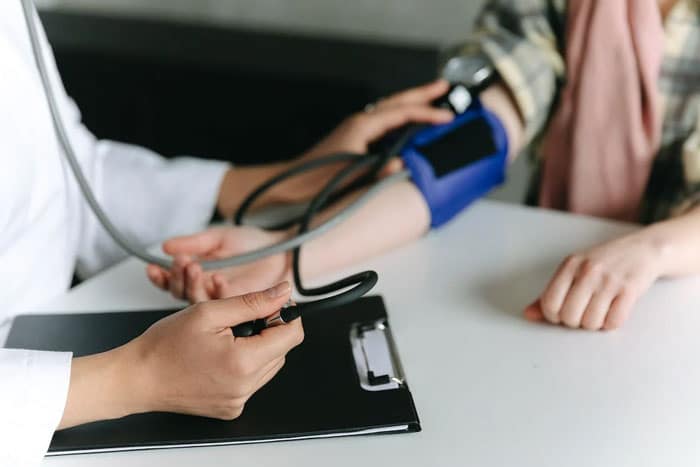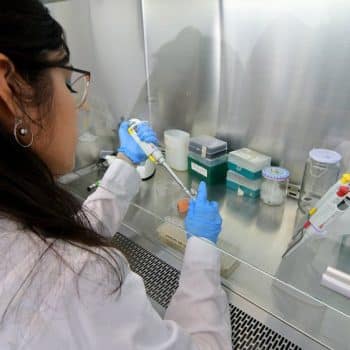
This post provides detailed information on the cardiovascular technologist job description, including the key duties, tasks, and responsibilities they commonly perform.
It also highlights the major requirements you may be expected to fulfill to be hired for the cardiovascular technologist role by most recruiters/employers.
What Does a Cardiovascular Technologist Do?
Cardiovascular technologists conduct diagnosis of the pulmonary and cardiovascular system using a variety of equipment.
The cardiovascular technologist job description entails assisting physicians in identifying and treating various heart, lung or blood vessel disorder.
In performing their duties, cardiovascular technologists receive patients in a cardiology unit and interact with them to obtain information regarding their medical history.
They register patients by inputting relevant information such as patient name and address on client database.
Their role also entails explaining to patients the details of a procedure and reassuring them of their safety during and after the procedure.
Cardiovascular technologists usually conduct various diagnostic tests such as electrocardiogram, echocardiogram, phonocardiogram and stress tests in order to read patients’ cardiac activity.
They prepare and position patients properly during diagnosis so as to obtain accurate readings.
They also assist physicians with the insertion of catheter into patient’s blood vessel during cardiovascular diagnosis and treatment.
As part of their responsibilities, cardiovascular techs maintain accurate record of patient treatment and diagnosis information.
They inspect cardiovascular machines and diagnostic equipment to ensure they operate efficiently.
Their work description also entails monitoring patients during tests to identify signs of discomfort and alert physicians for medical intervention.
In fulfilling their role, cardiovascular technologists treat and supervise the activities of trainee cardiologists and interns.
They read and interpret information on ultrasound display screen to record vital signs such as blood pressure, cerebral circulation, and oxygen saturation.
They also compare heart wall and chamber measurements to standard values to identify a defect.
Cardiovascular technologists operate imaging equipment to obtain radiographs of the heart and vascular system, just as inputting radiation value and filming sequence into computerized systems is also part of their description.
The cardiovascular technologist job requires an Associate’s or Bachelor’s degree in radiologic technology, cardiovascular technology, or in a related field.
To succeed in this career, you need to have certain qualities, including attention to details, technical, and teamwork skills.
Cardiovascular Technologist Job Description Example/Template
Cardiovascular technologists perform various functions in the health sector, helping to identify and treat various disorders affecting the heart, lungs, and blood vessels in patients.
Below is an example of the kind of job description cardiovascular technologists commonly work with in most health facilities:
- Prepare patients for diagnosis or treatment by cleaning, shaving them, and positioning them correctly
- Set up and operate diagnostic equipment such as electrocardiogram, ultrasound, and other cardiovascular systems
- Use electrocardiograph and treadmill to assess patients’ cardiac activity
- Conduct non-invasive peripheral vascular tests using ultrasound echoes to obtain image representation of blood flow and circulation
- Attach electrodes to patients’ arms, legs, and chest in order to obtain reading on an EKG machine
- Inspect cardiology equipment to identify faults and initiate repairs
- Train and supervise new cardiology technologists and interns
- Assist physicians in performing invasive procedures such as catheterization of the blood vessels
- Diagnose patients in accordance with instructions and standards set by a cardiologist
- Explain diagnostic procedures to patients to reduce anxiety
- Ensure work area such as surgical theater and cardiology unit are sterile and free of microbes
- Use EKG screen information to keep track of patients’ blood pressure and cardiac activity
- Evaluate cardiac physiology and calculate valve area using blood flow velocity measurements
- Schedule appointments and maintain inventory levels of medical supplies.
Requirements – Skills, Abilities, and Knowledge – for Cardiovascular Technologist Job
If you are looking to work as a cardiovascular technologist and want to know what you need to qualify for hiring, the following are common employer requirements you should have:
- Education and Training: To become a cardiovascular technologist, you require an Associate’s degree in radiologic technology or cardiovascular technology; some employers prefer cardio techs to have a Bachelor’s degree. Certification from the American Registry of Diagnostic Medical Sonographers (ARDMS), or from the Cardiovascular Credentialing International (CCI), is essential to securing the job of a cardiovascular technologist. Licensure for practice may be required by some states
- Attention to details: Cardiovascular techs are able to monitor patient’s vital signs to alert a physician in case of an emergency
- Technical Skill: They are well versed in operating automated diagnostic equipment to identify pulmonary of cardiac problems
- Teamwork skill: They are adept at working with physicians, cardiologists, nurses, and other health specialists to provide adequate care to patients.
Conclusion
If you are an employer in the process of hiring for the role of cardiovascular technologist and need to make a good description for the job, the sample work description and information in this post will assist you in achieving the goal.
With the detailed information about the duties and responsibilities of cardiovascular techs given in this post, you are sure to be able to make a complete work description that gets you the best candidates for the role.
This post also helps people who are interested in the cardiovascular technologist career with in-depth information about the job so they will know exactly what they are getting into and decide if they are well suited for it.












